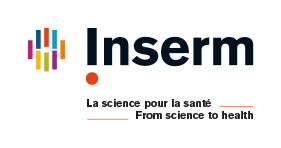Title:
![]()

Authors:


Direct Links:
https://doi.org/10.1182/blood-2018-07-861427
Abstract:
Filamin A (FLNa) links the cell membrane with the cytoskeleton and is central in several cellular processes. Heterozygous mutations in the X-linked FLNA gene are associated with a large spectrum of conditions called filaminopathies that include macrothrombocytopenia. Here we show, using an isogenic pluripotent stem cell model derived from patients, that the absence of the FLNa protein in megakaryocytes (MKs) leads to their incomplete maturation, and particularly the inability to produce proplatelets. The reduction in the proplatelet formation potential is associated with a defect in the acto-myosin contractility, due to inappropriate RhoA activation. This dysregulated RhoA activation was observed when MKs were plated on fibrinogen, but not on other matrices (fibronectin, vitronectin, collagen I and von Willebrand factor), strongly suggesting a role for the FLNa/αIIbβ3 interaction in down-regulation of RhoA activity. This was confirmed by experiments based on the overexpression of FLNa mutants deleted of the αIIbβ3-binding domain, and the RhoA-interacting domain respectively. Finally, pharmacological inhibition of the RhoA-associated kinase ROCK1/2 restored a normal phenotype and proplatelet formation. Overall, this work suggests a new etiology for macrothrombocytopenia, associating an increased RhoA activity with a disrupted FLNa/αIIbβ3 interaction.
Other Data:
- Submitted July 2, 2018
- Accepted December 21, 2018
- Published online January 2, 2019